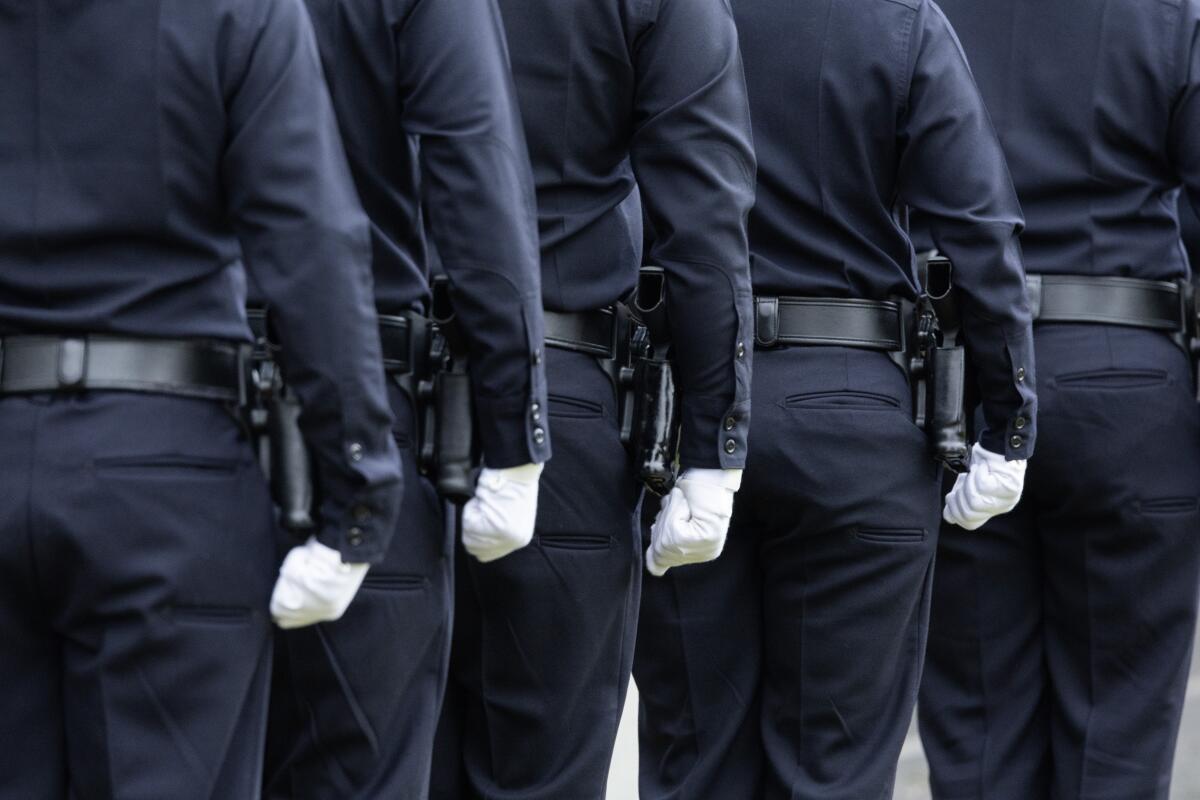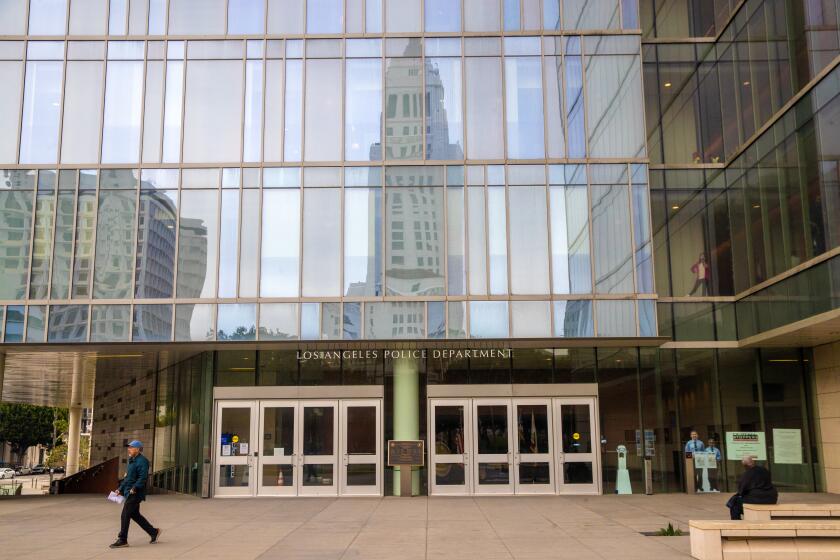Editorial: Los Angeles City Council may be on verge of bungling police accountability — again

In February 2023, Los Angeles City Council members Tim McOsker and Hugo Soto-Martinez proposed updating the police discipline process to permit the chief of police to fire officers and to alter the composition of the Board of Rights — the three-member appeals panel that considers serious discipline.
The idea was to craft a ballot measure to correct the problem created by a previous council in 2017, when it sent voters a measure that weakened police accountability, under the guise of strengthening it.
For a needed change in the Los Angeles Police Department’s failing discipline system to come before voters this year, the City Council must move faster.
It’s now more than a year later, and with just days to go before the deadline to get a new measure on the Nov. 5 ballot, council members and other city officials are still haggling over the details and it’s unclear whether whatever language makes it to the ballot will be an improvement. It’s infuriating that despite having more than 16 months to plan and vet details, the City Council has put off this topic so long that it may be on the verge of bungling police accountability yet again.
That late start meant that by the time the details were vetted in committee, and the full council instructed the city attorney’s office to draft language for a new ballot measure to replace the old one, the deadline for the ballot was looming.
Things appeared to blow up Friday, as McOsker and representatives of the LAPD and the city attorney’s office argued, sometimes heatedly, in the council’s rules committee over whether the draft language reflects or distorts the council’s intention, and whether it would best provide police accountability for serious misconduct.
Charter Amendment C, which voters approved Tuesday, undermines a key component of the Los Angeles police discipline system by granting officers an option to choose a historically more lenient group of judges when they’re accused of violating department policies.
Several days earlier, a member of the Board of Police Commissioners — the panel of mayoral appointees who set department policy — asked why the commission hadn’t been consulted on the new discipline proposals. Another member asked why the council couldn’t just return to the police discipline system that existed before 2017, which the ballot measure from that year appears to permit. It’s a fair question.
How could city leaders have reached what should be the end of the debating and drafting process without allowing important parties to have weighed in?
Council President Paul Krekorian said the process took so long because leaders were “trying to strike a balance between the due process rights of our employees and the authority of the chief to be able to take immediate action in serious situations.”
That’s fine, but Angelenos deserve to know whether the police discipline ballot measure they face in November has been fully thought through, and is less deceptive and better for the city than the misbegotten Charter Amendment C that it would replace.
That’s the question council members should ask themselves Tuesday when they consider whether to put the new measure on the ballot.
More to Read
A cure for the common opinion
Get thought-provoking perspectives with our weekly newsletter.
You may occasionally receive promotional content from the Los Angeles Times.











